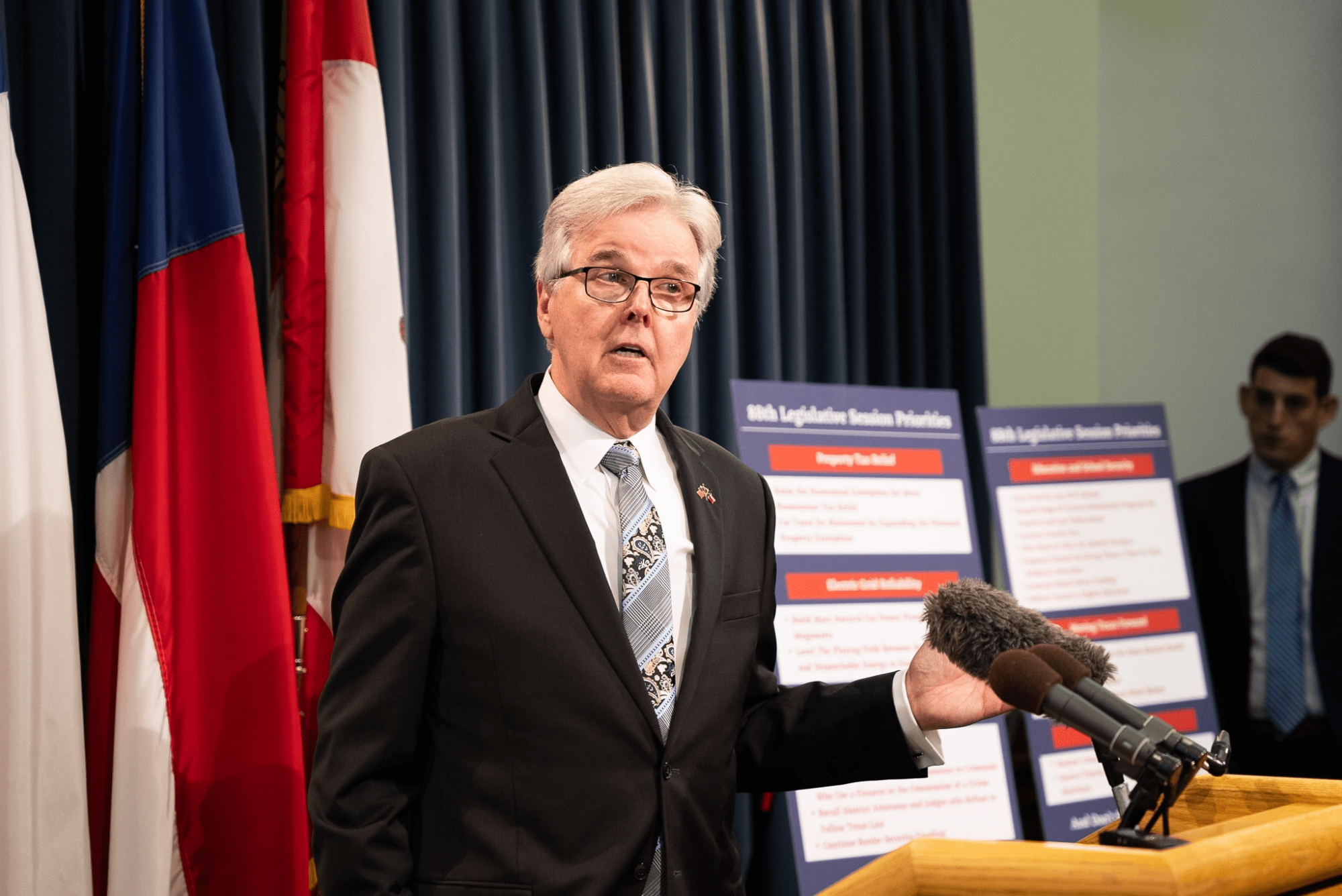How was the 86th Texas Legislative Session?
Well, if you talk to legislators themselves, it was the best ever. That is based on how they feel more than anything else. There was far more “cooperation” and “unity” than before; everybody was nicer to each other throughout this session. The fights were minimal from the outside.
So, everything is great, right?
Not exactly. We don’t send these folks to Austin to be a tax-funded social club; we send them there to get things done. So, let’s move away from feelings and look at facts and accomplishments. Did they accomplish more?
I would say yes. But not as much due to cooperation as they would like to believe; a far larger share of the credit goes to the ridiculously strong Texas economy generating record-shattering amounts of tax collections. Unity would not have held up if they hadn’t been able to throw pallets of cash at every problem, real or perceived. It’s easy to accomplish things with a tsunami of cash.
But did they accomplish the right things? In many areas, no. Indeed, they accomplished many Democrat goals, and it is notable that the Democrats are every bit as happy about this session as the Republicans.
In one of the worst displays of groupthink I have ever seen, legislators nearly unanimously supported the contention that the answer to the problem of “troubled kids” (including those that shoot up schools) is to be found in the mental health field. Lawmakers ignored the fact that many of those troubled kids who shoot up schools were already in the hands of the mental health professionals, and most were on psychotropic medications. There was no serious discussion during the steamrolling of Senate Bills 10 and 11 on the issue of an increasing dependency on pharmacology for controlling mood and behavior. Nearly every GOP legislator ignored these issues, too much in fear of the “education” lobby to do otherwise (I put “education” in quotes because so much of what they do is not related to actual education).
Fear of the “education” lobby extended to the budget and school finance, where huge increases in funding were shoveled out and accountability for its use totally ignored. By the third week of session, it was clear the legislature—nearly the entire ‘Freedom Caucus’ included—was determined to spend every last dime they could lay their hands on to pacify the “education” lobby because of their heavy political activism in the last general election. (Not that it will save Republicans; Democrats always promise more and will have the education lobby out working against the GOP in 2020.)
However, the Texas economy—and the grassroots strongly demanding property tax relief—proved to be enough to get something that has to be classified as a substantial achievement: a last-minute deal to use about half the nearly $10 billion in anticipated (surplus) revenue to buy down property taxes. But make no mistake, the biggest hero here is a Texas economy that allowed them the take care of $7 billion in costs associated with the unprecedented Harvey disaster, find $6.3 billion more to throw at “education,” and put together a $5 billion property tax relief package.
Yet some heroes in the legislature had to fight the ‘spend it all’ crowd. Most were on the Senate side, with Paul Bettencourt as the main leader, along with Brandon Creighton and Kelly Hancock. But in the last days during conference committee, where the final school finance deal ended up better than expected, someone had to have beat Dan Huberty and his House Bill 3 committee picks into submission. I believe it was Gov. Greg Abbott, likely with an assist from House Speaker Dennis Bonnen, and that was key.
And that brings me to the new speaker. How did he do?
Well, he was better than Straus, mainly through clarity and focus, and allowing the membership to drive the House more. Was that mostly a benefit to conservative policy and principle? No, it was not. But Bonnen was clear in messaging from the beginning of the session. Picking Sefronia Thompson as chair of Public Health was clearly announcing he had no intention of having big fights to advance pro-life issues this session. The same with selecting Poncho Nevárez as chair of Homeland Security and Public Safety in terms of major Second Amendment fights. At the same time, he stacked the committees to stop the Democrats from advancing major issues as well. Dustin Burrows as Ways and Means chair meant no massive increases of business taxes. Stephanie Klick on Elections assured no “same-day” or electronic voter registration or massive expansion of mail-in ballot utilization—all open to major fraud.
Then there was the “Big 3” sales tax debacle. In the midst of a massive state revenue surplus, Bonnen, Abbott, and Lt. Gov. Dan Patrick came up with the bright idea of supporting a sales tax increase for a property tax buy-down and tying GOP political fortunes to voters approving the increase. This was concrete proof they were spending no time consulting with people outside the Austin bubble; anyone else would have told them this was political suicide. That suicide was stopped by Bettencourt, Bob Hall, and Angela Paxton, who went up against the Big 3 steamroller with “no-confidence” votes in committee to bring it to a halt and force the sales tax piece to be considered separately. When it returned to the House floor, 60 Democrats signed in opposition, while Bonnen and Huberty couldn’t get enough GOP members to vote for it. Bettencourt, Hall, and Paxton likely saved what chance the GOP has of retaining the Texas House in 2020—and they were punished for it by Patrick (Bettencourt was not appointed conference chairman for his own landmark reform Senate Bill 2, and Paxton wasn’t even on the committee; Hall paid the price at the bill level).
What else was a failure this session?
Essentially every conservative priority. The Republican majority got a very weak version of eliminating school M&O property taxes (8 cent then 13 cent tax rate reductions cumulative in the next two years), and a really weak religious liberty bill (the ‘Chick-fil-A’ bill, Senate Bill 1978, that only prevents discrimination by basic religious affiliation and donations made). They did eliminate deals with cities funding Planned Parenthood in Senate Bill 22.
Voter integrity efforts (Senate Bill 9) and others of any significance failed. Eminent domain reform died. All efforts to rein in tax-funded lobbying, a top-five Republican Party of Texas priority, failed.
The biggest disappointment was the so-called “Freedom Caucus.” Their retreat from all issues controversial (except for Jonathan Stickland, who grew so disgusted he left the caucus) was embarrassing to see. They did it for “a seat at the table” and what did it accomplish? Absolutely nothing.
Not one of them authored and passed a significant bill (unless you count protecting lemonade stands) and none were included in any significant conference committees, where the final deals between the House and Senate are made. They got a seat at the table, then were told to shut up and sit quietly.
The SB 2/HB 3 combination of property tax reform and school finance was a pretty good result—though it could have been far better if they didn’t spend so much in the budget (House Bill 1). But the rest of the session was pretty much a waste of time. Lawmakers are coming home and will sing the praises of this session, because of “cooperation” and “unity.” But that got us little improvement in overall results and cost us dearly in some priority areas.
As for my activities in Austin, I felt I actually made some difference, especially on property tax reform/relief. I also got a number of “attaboys” (even from lobbyists) for bringing common sense to some of the discussions, and my “Not a D**n Lobbyist” shirts made me highly recognizable and appreciated in many places; it expressed what many people think and got under the skin of the professional political class.
The rest of the session was a soul-crushing grind with only glimmers of satisfaction.
On that note, after 57 years of volunteer political campaigning, I am formally retiring.
There simply are not enough conservative ideals being practiced by most GOP officials for me to put my effort into keeping them in office. And the system is corrupting them faster than we can replace them in the primaries. I no longer am scared enough of the Democrats, because the GOP—in their desperation to retain power—are accepting way too much big government policy of the Democrats as their own approach. If Democrats take over, maybe the GOP will rediscover actual constitutional governance, but I doubt it.
Later generations will have to straighten out this mess. I may still work to drop some common sense in a few places, but in the campaign world, I’m done and checking out. I’m exiting stage right—because the entire stage is moving too far left for me.
This is a commentary submitted and published with the author’s permission. If you wish to submit a commentary to Texas Scorecard, please submit your article to submission@texasscorecard.com.





